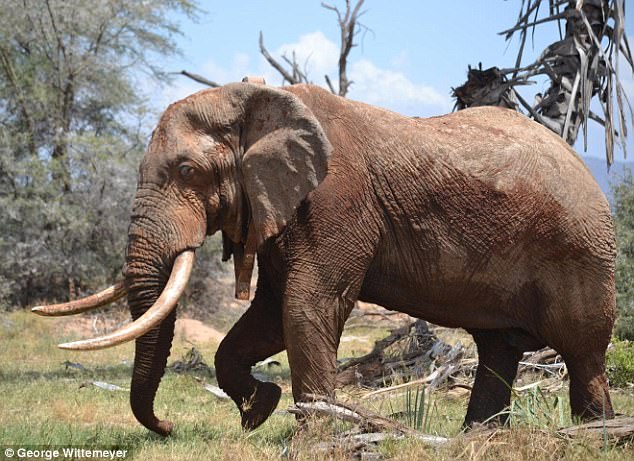Animals worldwide are giving up their ‘wild ways’ and sticking closer to home as a result of human activity, according to Daily Mail.
That’s according to a new study that found mammals living in areas with high human activity move up to three times less far than animals in areas isolated from people.
This pattern persists globally, from forest elephants to foxes and red deer, affecting species both big and small.
Experts say that human settlements, roads and fences break up their natural habitat and block the natural migration of mammals, allowing for the easy spread of deadly diseases.
This habitat ‘fragmentation’ also hinders animals’ ability to mate and find shelter and food.
Reduced mammal movement also has an effect on the environment as many plants rely on mammals to disperse their seeds.
‘The importance of the geographical movement of animals in the wild has long been documented,’ said study coauthor Dr Adam Kane.
‘It is necessary for the animals to find food, water, mates and new habitats to live in.’
The research was carried out by more than 100 scientists from across the globe led by Dr Marlee Tucker.
Experts tracked the effect of human activity on 57 types of land mammal via a measure of human activity known as the Human Footprint Index (HFI).
The HFI measures how much our species has impacted an area using factors such as population density and the presence of roads and night-time lights.
‘Our study looks at everything from hares to elephants,’ lead author Dr Tucker said.
‘The scientists in our team equipped individual animals with a GPS tracking device that recorded each animal’s location every hour for a period of at least two months.’
Researchers found that, on average, mammals living in human-modified habitats move two to three times less far than their counterparts in human-free areas.
The animals likely move less because they have changed their behaviour in human-modified landscapes.
Study co-author Dr Thomas Mueller, suggested barriers created by human infrastructure might limit mammalian movements.
He said: ‘Humans don’t create physical barriers alone, and there are often incentives to stay put.
‘In some of these areas, there might be more food available, so that animals do not need to cover such large distances.’
The authors of the report say that cutting short the natural movements of animals is not without its consequences.
Disease can spread more rapidly if a sick individual doesn’t move far, and the movement of animals also allows seed dispersal from plants.
This, in turn, feeds into the natural cycle of the environment as nutrient and seed dispersal is restricted.
Future work will look to see if this effect holds for groups of animals other than mammals.
Dr Kane said: ‘Most birds won’t have the same obstacles as mammals. It would be fascinating to see if, and how, their movements change around our cities’.
N.H.Kh

